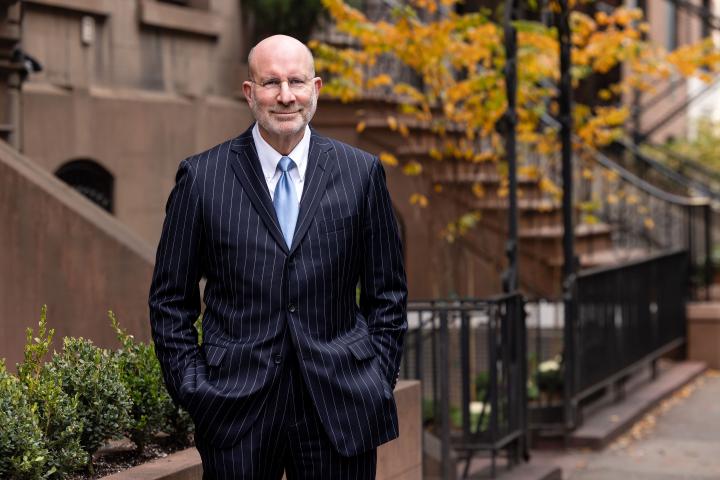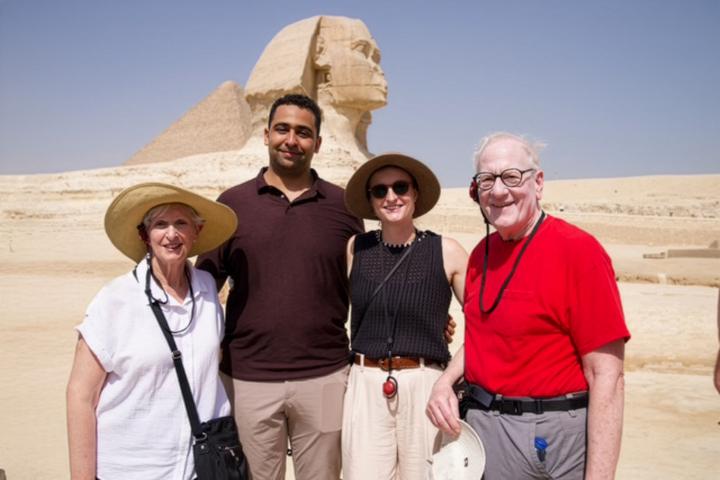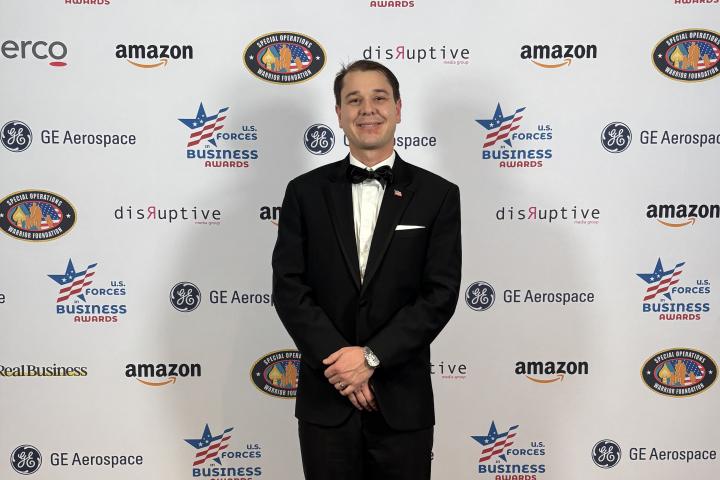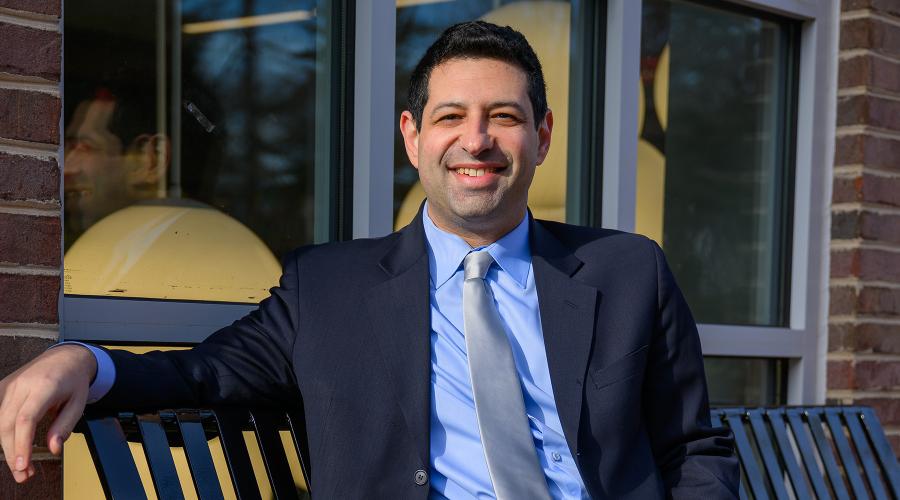
A Gentle Man, With Backbone
As an ILR student, Mark Eskenazi ’05 loved labor law. But when a professor asked what he most looked forward to after graduation, he didn’t say, “being a lawyer.” He said, “being a dad.”
Both have brought him immense joy.
Now the father of 5-year-old Lyla, whom he describes as “happy-go-lucky and a firecracker,” Eskenazi is assistant general counsel, international trade and labor law, for the Office of the U.S. Trade Representative.
He returned to that post in December following a one-year term as director for international economics at the White House, where he served on the National Security Council and National Economic Council.
Jointly serving both agencies, he said, allowed him to promote the Administration’s innovative goal of integrating foreign and domestic economic policy.
Eskenazi’s road to the White House began at the ILR School, where he learned both the substance and process of labor law.
As a freshman, he took a labor history course with Professor Clete Daniel, who “would tick through obstacles to workers’ rights to organize,” Eskenazi said. “He always mentioned legal obstacles – both before and after Congress passed the landmark National Labor Relations Act. He made me feel there was a path for me in law and government to review and possibly address these obstacles.”
Daniel led a study abroad program at the International Labor Organization in Geneva, and Eskenazi was among his first students. “I interned in the ILO’s SafeWork office, focusing on workers’ rights to health and safety,” he said, noting it broadened his perspective and exposed him to international legal regimes.
Eskenazi also found inspiration from courses taught by Professors Lowell Turner (international politics), Richard Swedberg (sociology) and Harry Katz (collective bargaining).
It was Katz who, according to Eskenazi, advised students to “be who you are.”
So, who is Mark Eskenazi?
“I think I’m a gentle person. But I have a backbone. My wife says I can get along with anyone and try to build consensus. But I stand up for myself – and for others.”
At Cornell, Eskenazi refined his listening, advocacy and debate skills. He took an argumentation and debate course with Professor Jethro Hayman, became a teaching assistant for the course, joined Cornell’s policy debate team – now based in the ILR School – and participated in tournaments throughout the Northeast.
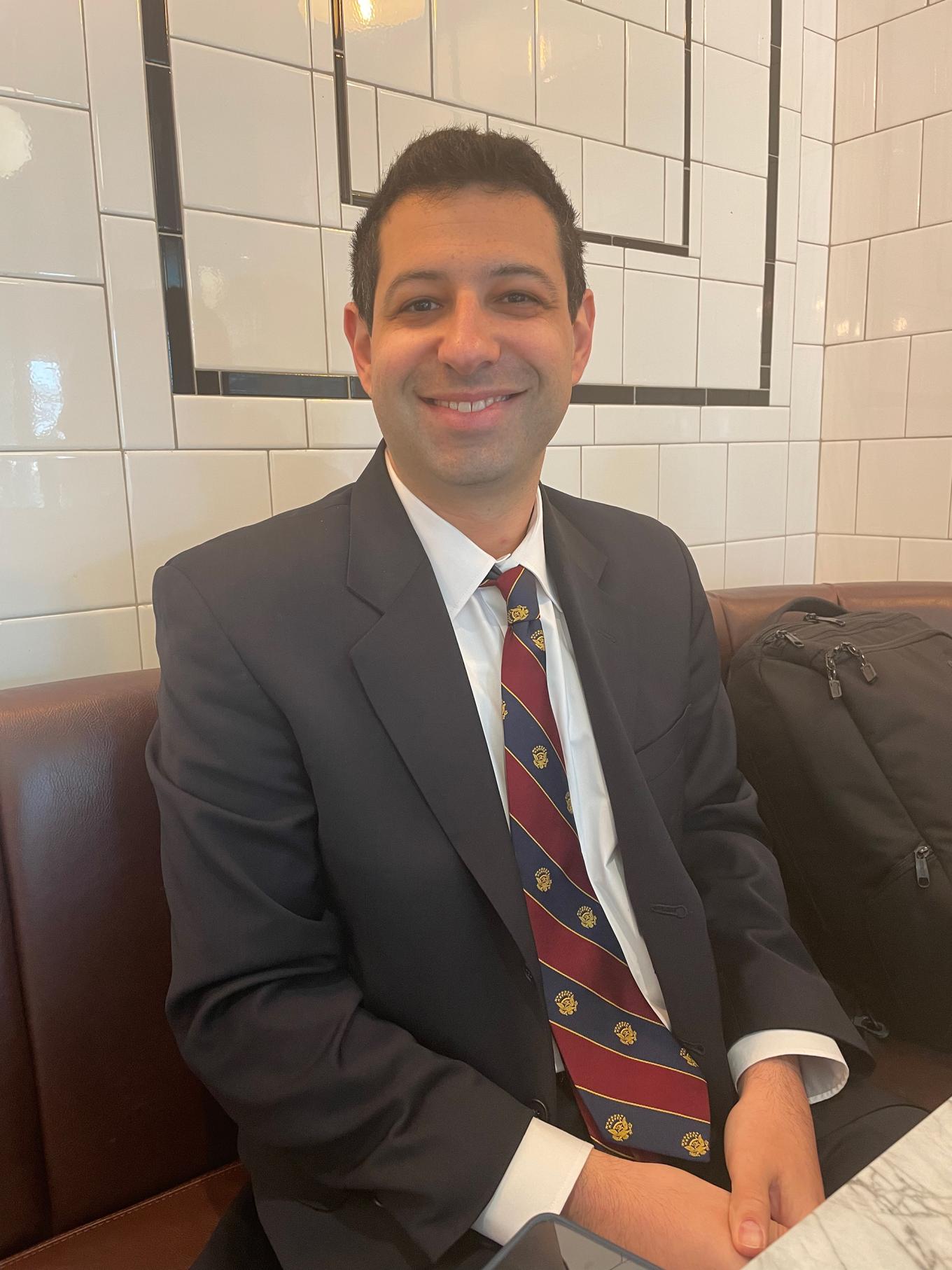
He also became a counselor at Cornell EARS (Empathy, Assistance & Referral Service), which “gave me skills in active listening that I’ve used throughout my life,” he said. He was drawn to EARS because “I think it’s pretty universal that people want to feel heard without being judged.”
After earning a J.D., cum laude, at Georgetown University Law Center, Eskenazi spent a year as a labor and employment associate at Skadden. Starting in 2009, he began working at the National Labor Relations Board. He split his time between investigatory and litigation work on the general counsel side of the agency and quasi-judicial work on the board side. “On the board side, I was able to do a deep dive into the legal foundations of federal labor law and develop a greater understanding of some of the legal promise and obstacles I’d learned about in my ILR days,” he said.
In 2021, Eskenazi joined the trade office as assistant general counsel, drawn by the opportunity to safeguard worker rights through the Rapid-Response Labor Mechanism of the United States-Mexico-Canada Agreement.
“The worker rights provisions in the trade agreement were groundbreaking,” he said. “Before that, when the United States traded with other countries, there was an expectation that workers would be treated fairly, but no real way to ensure the laws were being enforced in specific cases. Now, there is a mechanism for that to happen and concrete results for workers.”
In his year at the White House, Eskenazi worked on a range of economic and supply chain policies. He also supported implementation of the trade agreement and the Uyghur Forced Labor Prevention Act.
His time at both the Office of the U.S. Trade Representative and the White House impressed upon him that “what happens abroad doesn’t stay abroad. It’s not just about U.S. consumers getting cheap goods. It’s also about how workers abroad are treated,” he said. “And then, how that affects our workers and businesses.”
His parents’ experiences sparked Eskenazi’s passion for labor law. His mother, who worked in public education, “had the protection of a labor union, which represented democracy in the workplace – she had a voice,” he said. When his father, who was not in a union, was laid off from sales positions, he had no such protection. Eskenazi was struck by the contrast.
“That had an important effect on me,” he said.
Eskenazi’s father later found work as a job coach for people with disabilities, a role that suited him well. “My parents’ persistence stuck with me, and I always hoped to fight for the economic security of others,” he said.
Outside work, Eskenazi is an avid reader and enjoys running and visiting the beach with his wife and daughter.
Reflecting on what drives him when faced with challenges, Eskenazi points to Mother Teresa’s poem “An Inspiration for Living,” which he reads almost every morning.
A key passage, for him, is:
“Give the world the best you have,
and it may never be enough.
Give the world your best anyway.”
“It sums up a lot of what I strive for in work and in love,” he said.
